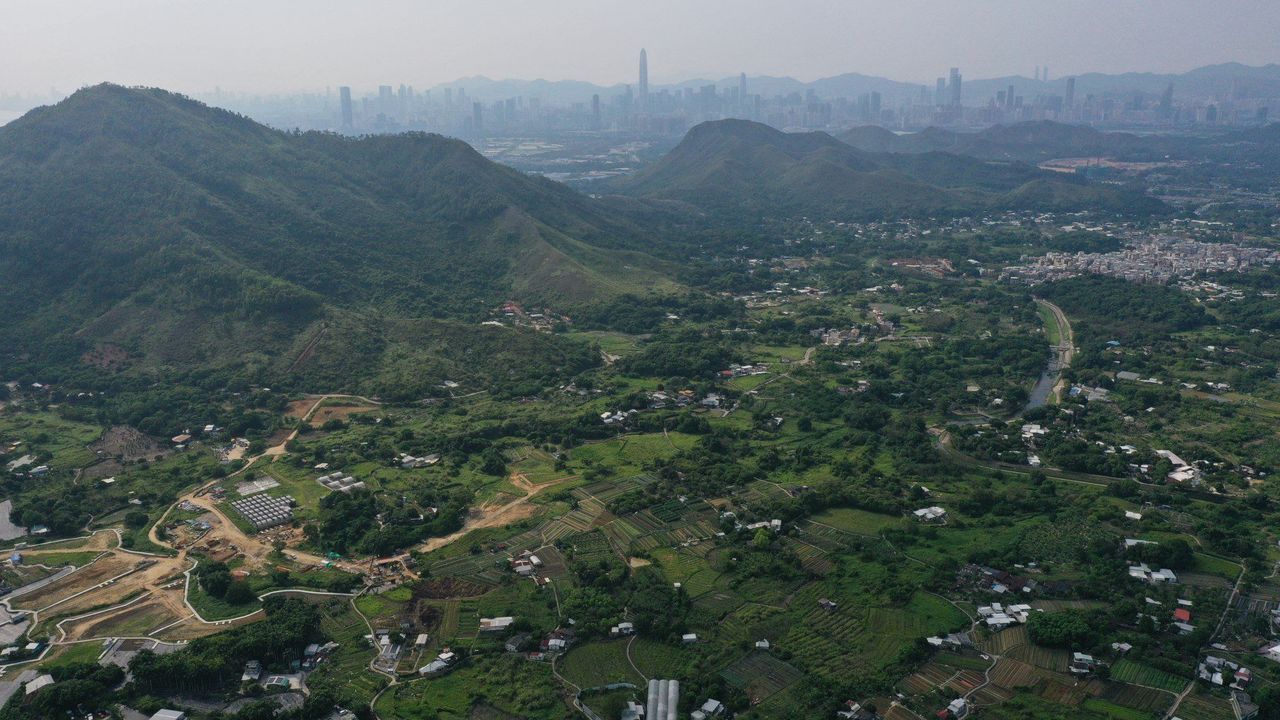Hong Kong News

Hong Kong coffers can’t afford 2 mega projects at same time, economist warns
Building three artificial islands off Lantau for a huge housing and economic hub will push Hong Kong’s fiscal reserves into deficit in as little as five years, an economist has projected, saying priority should instead be given to another major development plan near the border with mainland China.
The comments by economist Andy Kwan Cheuk-chiu, director of the ACE Centre for Business and Economic Research, on Wednesday echoed the views of Regina Ip Lau Suk-yee, the top adviser on the city’s key decision-making Executive Council, and came a day after Hong Kong’s leader said both projects should proceed simultaneously.
Exco convenor Ip had said on Monday that priority should be given to the Northern Metropolis plan, a blueprint to turn large parts of the New Territories near the mainland border into a residential and tech hub with more than 900,000 flats and up to 650,000 jobs.
 Andy Kwan is director of the ACE Centre for Business and Economic Research.
Andy Kwan is director of the ACE Centre for Business and Economic Research.
The three artificial islands under the Lantau Tomorrow Vision project would provide enough land for 210,000 flats for half a million people and a new business hub on an initial 1,000 hectares (2,471 acres) of reclaimed land over two decades.
“We cannot implement both projects at the same time. The cost is too high,” Kwan said, adding the metropolis plan could help utilise idle land and foster integration between the city and neighbour Shenzhen.
While the Lantau project is expected to cost HK$580 billion, no price tag has been given for the Northern Metropolis, with the government only announcing in the 2022-23 budget that funding of HK$100 billion would be set aside to support and expedite the plan.
Kwan studied the Lantau project using three economic models with annual GDP growth forecasts ranging from 1 per cent to 4.5 per cent in the coming two decades based on government figures.
He said the city’s fiscal reserves would start to record a deficit by 2028-29 at the earliest and the shortfall could reach more than HK$7 trillion by 2041 in the worst case.
“As the government has to repay the debt with interest, the treasury will be exhausted,” Kwan said.
 Regina Ip.
Regina Ip.
He said his forecast assumed the government would issue bonds for HK$65 billion annually for a decade to cover the Lantau project’s costs, and that the public coffers would gain an expected HK$750 billion from land sales on the artificial islands after 10 years.
Financial Secretary Paul Chan Mo-po last month estimated the city would run a deficit of HK$54.4 billion and fiscal reserves would fall to HK$762.9 billion in the next financial year.
Kwan said the government could hardly boost its coffers from salaries tax, land sales and stamp duties income given the shrinking labour force amid an emigration trend and ageing population, on top of recent low land premiums under a weak economy.
The government revised its estimate for land revenue to HK$71.1 billion for 2022-23, marking the lowest sales figure in the past seven years.
According to government statistics, the labour force dropped from 3.87 million in 2021 to 3.76 million between last December and February.
Kwan warned of the possible consequences of the government running a deficit.
“When the government faces financial difficulties, it will cut expenses on medical and welfare aspects and increase the tax rate. It can arouse public dissatisfaction,” Kwan said.
 The Northern Metropolis scheme will cover areas near the mainland border.
The Northern Metropolis scheme will cover areas near the mainland border.
Chief Executive John Lee Ka-chiu on Tuesday said both mega projects should go ahead together, especially as the city had to boost its competitiveness and outperform regional rivals.
In a Facebook post, the Development Bureau said claims that the Lantau project would empty the coffers lacked “objective basis” and were “arbitrary” as the scheme was still under preliminary planning and a comprehensive cost estimate could only be offered at the detailed design stage.
“By using different financing options, market forces can be used appropriately to help the project move forward,” the post said.
“Hong Kong is one of the world’s leading international financial centres, we are fully confident that we can brainstorm and find a suitable financing package.”











